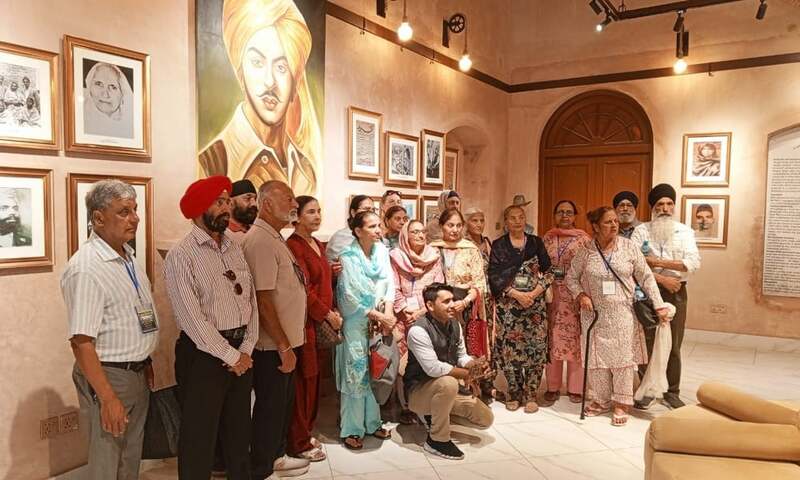Copyright brecorder

LAHORE: A delegation of Sikh ‘yatrees’ from the United Kingdom and the United States visited Poonch House and the Bhagat Singh Gallery and praised the Punjab government for transforming heritage sites into centres of cultural learning and tourism. According to the Tourism Development Corporation of Punjab (TDCP) on Monday, constructed in 1849, Poonch House stands as a significant architectural landmark representing the colonial-era heritage of Lahore. The delegation was briefed by the TDCP guide on the historical importance of the building, which has been meticulously restored by the Government of Punjab as part of its ongoing commitment to preserving and promoting cultural heritage. Moreover, a documentary was screened, showcasing the restoration journey, architectural value, and Bhagat Singh’s pivotal role in the independence struggle against British colonial rule. The visitors appreciated the high-quality preservation work executed with complete respect for historical originality. The delegation later toured the Bhagat Singh Gallery, where the final phase of the revolutionary leader’s 1931 court trial has been portrayed through exhibits. They were given a detailed briefing on Bhagat Singh’s life, his struggle for freedom, the legal proceedings, imprisonment, and personal belongings on display. A major attraction for the visitors was the replica courtroom, restored to represent the 1931 trial setting, offering a compelling insight into the defining moments of Bhagat Singh’s bravery and sacrifice. The Sikh yatrees expressed deep admiration for the way the gallery honours one of the subcontinent’s greatest freedom icons. They stated that such initiatives significantly contribute to strengthening cultural bonds and celebrating a shared historical legacy across nations. The visitors also explored the Punjab Small Industries Corporation (PSIC) souvenir stall, where they purchased beautifully crafted mementoes related to Poonch House and Bhagat Singh. Copyright Business Recorder, 2025



